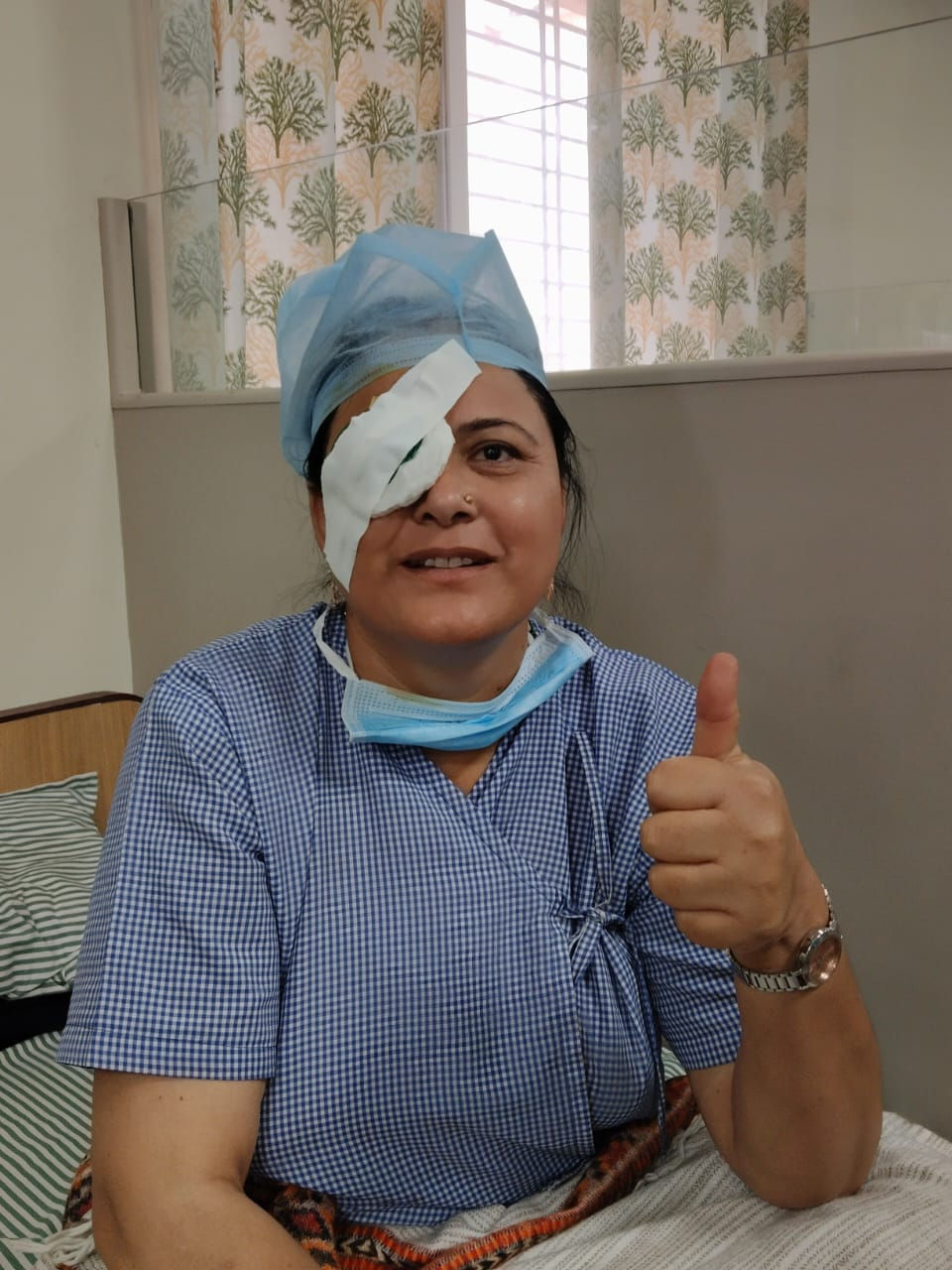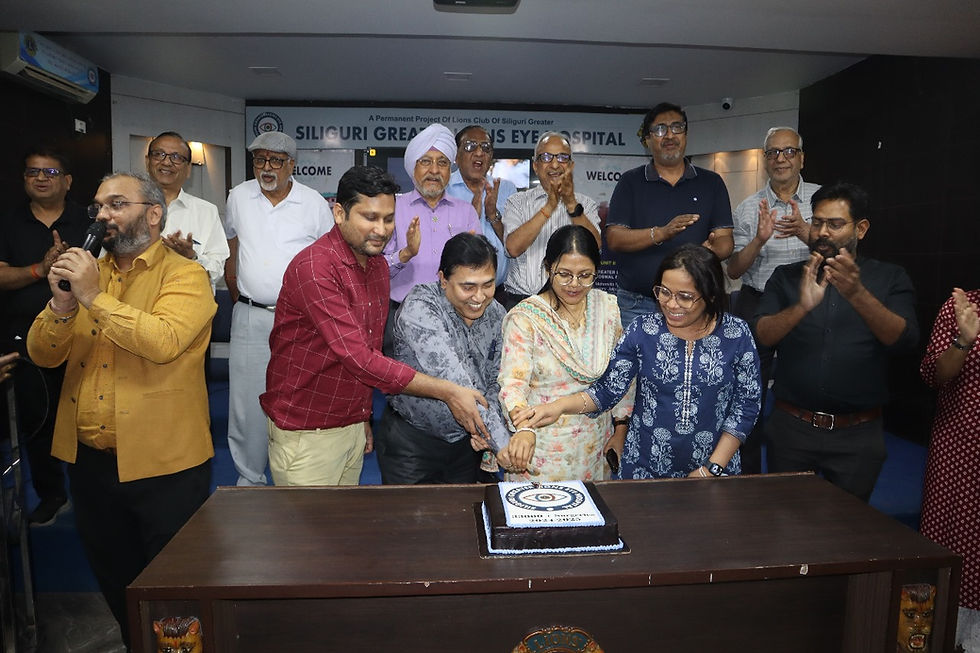Eye Health Hero: Ambika Sapkota
- Greater Lions Eye Hospital

- Oct 7, 2020
- 3 min read

28 years old Ambika Sapkota, is the 2nd child of the 5 daughters of Ritu Lal Sapkota and Bishnu Maya Sapkota who lead a humble livelihood as farmers in the far flung eastern region of Sikkim at Singtham, Khamdung. She is the first one in her family to have received higher secondary education. Born and brought up in a family with her father’s 10 uncles living together under a single roof, Ambika’s childhood including adolescence was spent living together with all her uncles, aunts, grandparents and their children and taking care of all their daily chores themselves at Patuk 17 km from Khamdong. While, Ambika was growing up in Patuk her father bought a small farm at Khamdong to start traditional step farming including animal husbandry to support his family now with 5 daughters; whom he ensured received proper formal education. Ambika completed her senior secondary education from Sonamati Memorial Government Senior Secondary, Khamdong in 2012.
With her elder sister, a Staff Registered Nurse working at Government facility in Malda her uncle suggested, she also opt for the public health sector noticing her interest in humanitarian services. Ambika first joined Siliguri Greater Lions Eye Hospital as a Vision Technician student in August of 2013, which for the next 1 year would empower her towards comprehensive vision screening, refraction, general eye disease diagnosis. The programme included further 1 year of internship and after 3 months of on job training at the hospital she was placed at the Greater Lions Vision Centre Islampur; a Muslim majority sub-urban pocket of North Bengal far from the culture and lifestyle she was so much affiliated to earlier. Coming from a Nepali hill culture where gender differences or gender roles are not distinct it was very difficult initially for Ambika to adopt to her new lifestyle and everyday struggles. Language was another barrier that limited her communication, but she was determined to overcome these challenges and saw it as an opportunity to expand her capabilities. She says that during these initial days her parents and elder sister appeared as her greatest support telling her that every profession has its challenges and one has to overcome them gracefully.
And her determination paid off when gradually she gained acceptance from the society. Her cultural upbringing to not differentiate among people and inert sensitivity towards her patient’s ailment brought in them not only respect, but also resulted in her social inclusion into a community where women are often considered secondary to men. She explains that today when she comes to open the Vision Centre at the morning, she finds people in line just waiting for her arrival. To Ambika respect is a two way process, with the community recognizing her efforts she also today experiences an inert sense of responsibility towards them.
Since, she took to the Centre at Islampur on March 2015, more than 30,445 persons have been screened, 7950 spectacles prescribed and 2435 patient referred and treated at the Base Hospital at Siliguri. The centre saw an increase of patient footfall by 6 times since her posting. With her help, the hospital has reached far-flung remote areas of Islampur and its adjacent areas through eye screening camps sensitizing masses. Through her efforts today 23 villages have been declared Avoidable Blindness Free in Rajganj Block.
“Her conscience and psychological straightness makes her extremely proud about her basic upbringing and today she credits that same environment to have empowered her to understand with clarity human emotions and relations without taking the same as a burden. She today enjoys the strength as an independent woman in the socio-cultural and community environment of the hills instilling in her respect but at the same time equal participation, intersectional dialogue and gender just behavior from all her peers.
Today, she is often honoured as “Doctor Madam” in the Islampur community despite being not a Doctor for her empathy and strength in supporting her patients. Even Registered Medical Practitioners around her region refer patients with eye problems to her knowing that she would ensure the proper ophthalmic care.
With time she has added to her work without any complaint, and has helped the hospital reach far flung remote areas of Islampur and its adjacent areas through community direct interventions and eye screening camps sensitizing masses and arranging essential logistic support to the patients coming from difficult circumstances.
“The community where at first I felt afraid, is now the safest place where I can be and I would do everything to improve their livelihood empowering them through better vision.”



Comments